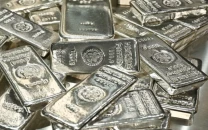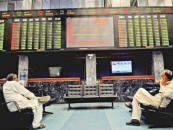Tax audit of fertiliser firms to be conducted
Council will probe failure of companies to deposit GIDC of billions of rupees

As the Competition Commission of Pakistan (CCP) tightens its grip on fertiliser manufacturers, the issue of their tax audit has landed in the Special Investment Facilitation Council (SIFC) to investigate the companies that have failed to pay dues of billions of rupees of the gas infrastructure development cess (GIDC).
The council is seeking updates for the tax audit of fertiliser firms. In addition, the CCP has found evidence that the fertiliser manufacturers indulged in monopolistic practices aimed at controlling urea prices. In this regard, it has issued show cause notices to them.
During the tenure of previous Pakistan Tehreek-e-Insaf (PTI) government, the apex court had directed fertiliser companies to release billions of rupees worth of GIDC installments. However, they did not comply with the directive as lower courts granted them stay orders.
Later, when the Pakistan Democratic Movement (PDM) government came to power, then prime minister Shehbaz Sharif formed a committee to address the GIDC issue, but it has yet to be resolved.
The PDM administration committed to expediting court proceedings to recover Rs453 billion in outstanding dues of GIDC from defaulters, predominantly the fertiliser industry.
However, the stay orders from lower courts, contradicting decisions of the Supreme Court, allowed business magnates, particularly from the fertiliser sector, to halt GIDC payments to the federal government.
The Prime Minister’s Office had in August 2022 constituted a ministerial committee tasked with exploring various options, including a forensic audit of fertiliser manufacturers and other businesses, to recover the GIDC arrears.
Read SC seeks Gun and Country Club’s audit report
At that time, it was revealed that a total of 2,496 petitions were pending in courts, with over 2,000 in the Sindh High Court and 474 in the Lahore High Court.
Two fertiliser plants, running under a fixed gas price contract for 10 years, argue that the discounted gas price of $0.70 per million British thermal units (mmBtu) offered to them under the Fertiliser Policy 2001 comprised all taxes, duties, levies, fees and charges, except for general sales tax or a similar duty.
Though they received gas at a concessionary rate, they charged farmers higher prices for urea and also failed to deposit GIDC running into billions of rupees.
Currently, the fertiliser firms are paying varying gas prices, with some manufacturers enjoying lower rates but receiving uniform fertiliser prices from farmers.
According to sources, Fauji Fertiliser is paying Rs580 per mmBtu for its plants while Engro is paying Rs1,615 per mmBtu for its old plant and Rs1,597 per mmBtu for the new plant. The price for Engro’s new plant has been increased from the earlier rate of Rs120 per mmBtu.
Among other manufacturers, Fatima Fertiliser is paying Rs580 per mmBtu and Pak Arab Fertilisers is bearing a cost of Rs1,268 per mmBtu.
The caretaker government, which stepped down after general elections in early February, raised the gas price to over Rs1,500 for the fertiliser industry.
Fauji Fertiliser holds a 40% market share, Engro controls 35% of the market, Fatima Fertiliser 18% and Agritech Limited 7%.
Calculations suggest that farmers are compelled to pay over Rs4,000 per 50kg bag of urea in different cities across the country. In the past, governments attempted to undertake energy efficiency audits, but fertiliser manufacturers turned down the request and threatened legal action, citing the absence of such provisions in their agreements.
Officials allege that the fertiliser manufacturers operate at low efficiency rates as they consume higher volumes of gas but produce less fertiliser.
Published in The Express Tribune, April 4th, 2024.
Like Business on Facebook, follow @TribuneBiz on Twitter to stay informed and join in the conversation.


















COMMENTS
Comments are moderated and generally will be posted if they are on-topic and not abusive.
For more information, please see our Comments FAQ